Association Leadership Spotlight: Terry Tully, Irish Pipe Band Association – Part 1
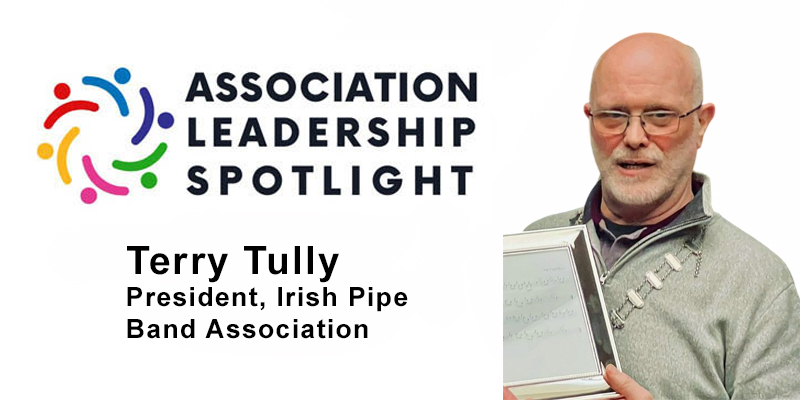 The Irish Pipe Band Association’s motto is “Ceol agus Traidisiún” – or translated from Irish Gaelic, “Music and Tradition.” It’s no coincidence that, while competition and precision are essential, music comes first in Celtic arts-rich Ireland.
The Irish Pipe Band Association’s motto is “Ceol agus Traidisiún” – or translated from Irish Gaelic, “Music and Tradition.” It’s no coincidence that, while competition and precision are essential, music comes first in Celtic arts-rich Ireland.
Terry Tully is a piping and pipe band legend. Pipe-Major of Grade 1 St. Laurence O’Toole for 29 years, including leading the band to its 2010 World Championship title, a virtuoso soloist with more All-Ireland Championships than you can shake a shillelagh at, a renowned composer, an in-demand teacher and adjudicator worldwide, he became President of the Irish Pipe Band Association in 2024.
As with most great leaders, he had to be convinced to stand for the role, but with a year under his belt, he’s embraced the job with commitment and dedication.
The Irish Pipe Band Association is one of the world’s oldest. Launched in 1939, the organization brought together Scottish-style pipe bands, Highland pipers and drummers – a minority of musicians in a deep green sea of Celtic folk tradition.
The IPBA is especially different in that it neighbours the Royal Scottish Pipe Band Association and its Northern Ireland branch. Scottish pipe bands in Ireland have made their mark at the top levels, from Fintan Lalor to St. Patrick’s Donaghmore to Black Raven to Manorcunningham to St. Laurence O’Toole and many others. The South of Ireland has been well represented throughout the nearly 90-year history of the IPBA.
The IPBA’s website features one of the most thorough and engaging historical information and photographic archives of any association worldwide: Irish Pipe Band Association Archive – IPBA
On the surface, Terry Tully seems quiet and unassuming, not one to relish a spotlight like this. But his leadership qualities are massive. When Terry Tully talks, you’d be wise to listen.
And listen we did when we connected with him for the latest installment in our Association Leadership Spotlight series.
We hope you listen closely, too, and learn at least as much as we did from his thoughts and insights, which we will publish in two parts.
Here’s a transcription of Part 1, with minor edits for clarity.
pipes|drums: It’s early June 2025, and we are really pleased to be with the famous Terry Tully, who is the president of the Irish Pipe Band Association. We’re going to talk about the IPBA. Terry, great to connect with you.
Terry Tully: Thanks for having me. It’s a pleasure to be here.
pipes|drums: Yeah, it’s our pleasure. Some pipes|drums readers might not be familiar with the Irish Pipe Band Association. Can you briefly talk about the structure and the size of the organization?
Terry Tully: I can imagine that there are not too many people in the piping world who would be familiar with the Irish Pipe Band Association, the IPBA. It’s a very small organization compared to what we have in Scotland, or maybe even what you’ve got in Canada.
It started its life very simply, in 1912, actually. It didn’t start as a pipe and association in those days; it started mainly as what people refer to as an “Irish War Pipers League.” It went on after that, and they formed what was known then as the National Bands Association. They had two or three stabs at forming an association before it actually became what it is today, which started in and around 1945, and is called now the Irish Pipe Band Association.
As I said, it’s very small. It consists mainly of the same as what you have in any association with a chairman, treasurer, a president (obviously myself), and it’s made up of a small body of people who do a lot of work. It has today probably three working branches, aside from from the association itself, which look after various things that would be taking place in their own jurisdiction, like competitions and events in general.
So, it’s small in stature and structure, but it gets along and gets the job done.
pipes|drums: You took the presidency only last year. What are some of your goals and objectives for the IPBA?
Terry Tully: Yeah, that’s a good question. I’m only a very short time involved in the association, about a year and a half, coming on two years after the summer. It wasn’t a role that I looked for. But when I was asked if I would I do the job, first of all, I said no. And then I was given some time to think about it, and I came back to them, and I said, Look, I’m happy enough to take on the role, on condition that changes would be made in the association. Traditionally, the association has been run basically by people who would be retired pipers or drummers. And now I am one of those people.
My own goals for the association: High on the list would be for our association to realize that it’s an association for all pipe bands and not just for competing pipe bands. We’ve got 32 pipe bands registered with the association. Of those 32 bands, we would be lucky if we had half of those that would be competing.
“I wanted the association to realize that the association is there for the bands and not the other way around, as I do feel that takes place in other associations.”
There’s a lot of work going on at the moment to try to get pipe bands back out on the grass again to compete, as prior to COVID. You may have had some balance that may have been quite small. The same happened in Ireland after COVID. Those bands are gone into non-existence. They don’t exist anymore. So, I took on the role as president because I wanted to give something back. I wanted the association to realize that the association is there for the bands and not the other way around, as I do feel that takes place in other associations.
There are quite a lot of goals and quite a lot of things that we’re working towards. There’s a lot going on at the moment in the association.
pipes|drums: What would be one of them?
Terry Tully: Getting the association to think differently about bands, and that it’s not maybe all about competition. Let’s say there are 32 bands, as I said, that are registered with the association. But there could be 40 or 50 more bands that are unregistered, dotted throughout this country, that have no interest whatsoever in competing.
“Our association doesn’t call itself the Irish Competing Pipe Bands Association. It’s getting that message out to bands that are dotted around the country to offer them help, assistance, advice, whereby it’s what we call our outreach program.”
We’re trying to get the message out to bands like that, that it’s okay, that the association is not just there for competing bands. For example, our association doesn’t call itself the Irish Competing Pipe Bands Association. It’s getting that message out to bands that are dotted around the country to offer them help, assistance, advice, whereby it’s what we call our outreach program, where we’re reaching out to bring them into the family to grow the association and make the association stronger than what it is. That’s a big part of it.
There is a program going on at the moment whereby we’re conducting on an ongoing basis workshops and seminars that bands like these. They’re non-registered, non-competitive bands, and they are coming to get instruction from people like me, Stephen Creighton and various other people who are involved in the program, to try and educate them, and especially to try to get the young people in it. It’s not aimed at people in their sixties, seventies and eighties. It’s aimed more at the younger generation of people, maybe kids who are ready, or near ready to leave home and to come to Dublin. In a lot of these cases, they do come to Dublin for college or for work, and they bring their bagpipes with them. But unless they have the education behind them and that they’re taught properly, they’re of no benefit to any of the competing bounds.
It’s a long-term project to try to get the message across to non-competing pipe bands. Having their younger generations of pipers and drummers taught properly is a big thing that’s going on in the association at the moment. There are lots of other things going on as well.
For example, our judges. They’re mainly selected and put through a process in the same way as they are in Scotland. We don’t have an exam system; our judges are selected from the best people we have, and they’re put through a training program, over a four-year period. The reason why it’s a four-year period is simply because we don’t have enough competitions to be able to get our churches qualified to a point that they’ve got enough pipe and judging and solo judging under their belt to feel confident, to go out there and judge both solos and competition. It takes a four-year period for us to do that. That’s something new as well in our association that I’m kind of spearheading. The association have put me in charge of that as well.
To put our judges through a training program, we’ve also just produced as well a booklet called “The Irish Pipe Band Association, adjudication guidelines, professional development for piping adjudicators,” which deals basically with, for example, if you’ve got a small competition where you’ve got maybe half-a-dozen bands in Grade 4. And , realistically, that’s where our bands are.
We’ve got 32 bands registered, with one band that plays in Grade 2, one band that plays in Grade 1, and the rest of the bands are in Grade 4 and Grade 4A and Grade 4B. The guidelines that we’ve issued have been issued to our judges. It advises adjudicators on what is important and what is not during the performance. And it also gives guidance on ranking, ranking performances in the overall places. That’s something else that is new for the association, which I’ve been given the responsibility to look as well. There’s a lot that has happened and a lot more to come, but a lot has happened in the last year-and-a-half.
pipes|drums: It seems like things are happening on the non-competing side. Maybe at the polar opposite, formalizing the judging, the accreditation and training process for the competing side of things. It comes to mind that Ireland, the Republic of Ireland is more entrenched in Celtic music than anyplace on earth. How are Scottish style pipe bands regarded in the Republic of Ireland?
Terry Tully: That’s a good question. In fairness, I think from the time that we won our World Pipe Band Championship in 2010 there wasn’t an awful lot happening in those days. After we won, there was very little advertising about that. There was nothing in the media. There was nothing in newspapers, nothing on television. People are a little bit more open on it now.
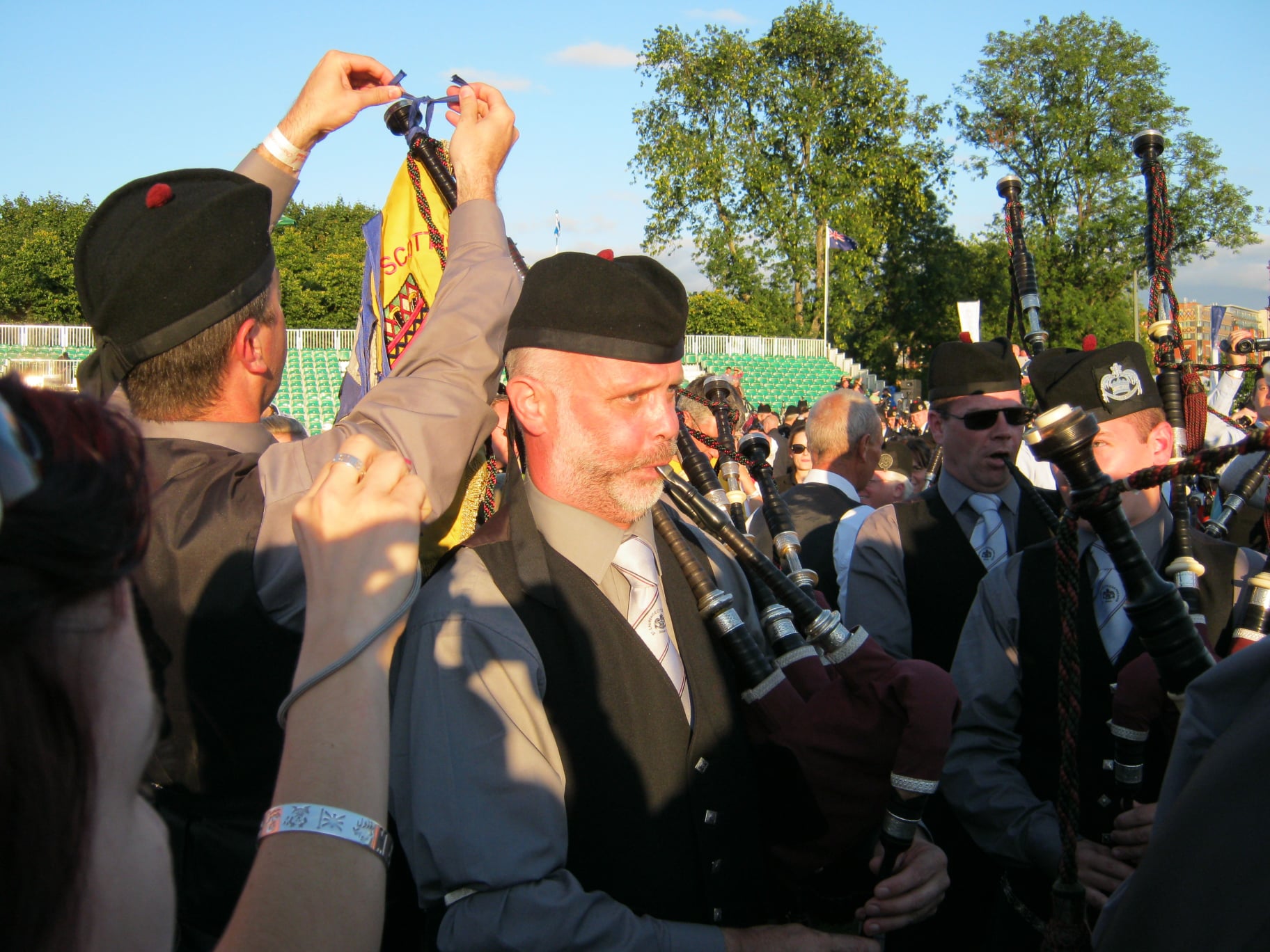
But it’s ongoing. It’s not seen in this part of the country. It’s not something that people are very familiar with, if you were, say, a small country band in a country village. It’s looked upon very favourably. Our band is an urban-based band. Its base is in Dublin City, but it’s never seen on the streets in Dublin City.
People are still uneducated about pipe bands, especially Scottish-style pipe bands, and that’s the problem with what we do. The culture here is completely different. Our culture here is based mainly around traditional Irish music. Just last night I was playing at a session in a pub playing traditional Irish music on uilleann pipes. That’s the scene that’s here.
I’ll always remember Andrew Boyd. When she came to Ireland she lived with us here in this house, and she was actually quite taken aback that pipers and drummers didn’t socialize in the pubs, maybe after band practice, or even in between band practices. And she found it hard to understand that the culture here is completely different. You go to a pub to listen to traditional Irish music, not bagpipe music or pipe band music.
Pipe bands get a bad rap in this country, mainly, and it’s ongoing work to try to change the mindset of people, for it to become a little bit more socially acceptable. Everybody loves to see a pipe band when it’s marching in the in the street on St. Patrick’s Day. But if we run a competition, for example, a local competition, the general public don’t to those kinds of pipe band competitions, band competitions. It’s always the support of the people who are in the bands that will come to it. The general body of people, or the public, are not interested in that type of an event.
It’s ongoing work. We do our best to try to improve that. If our band was a village band from somewhere in the country, it would be more acceptable for people in that village than would be as a band that is at the top of its game, unable to go out and compete at the highest level in Grade 1. They love the village pipe band, but not all that interested in bands that are successful in competition in Scotland.
pipes|drums: My perception would be that they might love Scottish style pipe bands just as much as, say, Irish Celtic music. But it’s not the case. Clearly, what come as a surprise to you, but that’s how I see it here. It has always been the case for for me as a pipe-major of our band, taking the band from the bottom end of Grade 2 to the top end of Grade 1, there was little or no recognition of that from any of the media in this country, hmm, interesting,
pipes|drums: On that note, the IPBA geographically neighbours the RSPBA’s jurisdiction, the Royal Scottish Pipe Band Association. What kind of benefits or challenges does that present for the IPBA?
Terry Tully: I don’t think it presents any challenges for competing bands in the south of Ireland. I think there are a lot of benefits, from being close to bands who are very competitive in Northern Ireland. We have quite a lot of lower-grade bands that have been in the past very successful in competition in both Northern Ireland and Scotland.
“For the bands who are strong and have enough to compete and have the interest to get better, the best place for them to be is in Northern Ireland, competing against bands in the North.”
I would credit the bands that have made a lot of advances in their own performance, travelling to Northern to gain more competition experience.
We have a very small pool here of pipe bands. But that doesn’t mean that we’ve got 32 bands that are eligible to compete, because a lot of those bands are struggling at the moment, unfortunately, due to simple reasons. For the bands who are strong and have enough to compete and have the interest to get better, the best place for them to be is in Northern Ireland, competing against bands in the North because they have a much larger pool of bands there, and generally, because of the larger pool, a lot of the bands would be very good quality. I’m not going to say they’re better than our bands, but they are good quality bands that do very well in Scotland.
That’s how our band, St. Laurence O’Toole, has improved: by travelling north of the border back in the early-to-mid-1980s. When we started travelling to the North, when I became the pipe-major, regularly. The first year we travelled there, we didn’t do particularly well, but that was the case for many years prior to that. When any of our bands travelled to Northern Ireland, the only time that they would do that would be for the All-Ireland Pipe Band Championships, which takes place in Northern Ireland every two years.
Back in the late ’70s and up as far as the mid-’80s, our band and all of the bands in Southern Ireland would be at the All Ireland Pipe Band Championships, whether in the north or in the south. And it would be very rare that a pipe band from the south of Ireland would be called out in the prizes. A part of the reason for that was simply because the bands were competing in the wrong grades.
Our band, for example, along with three other bands locally, were calling ourselves Grade 2. But if they competed in Northern Ireland in Grade 3, they would probably have struggled to get a prize. The association here realized that our bands were graded wrong, and regraded all of the bands with the result that it was more of an incentive for our bands at that stage to start traveling north, to compete against good northern bands.
That’s basically how we did it, and that is how a lot of bands in Southern Ireland are doing it today. Any of the bands that are keen to advance are doing it like that. They travel north. We have the All Ireland Pipe Band Championships, which take place in Northern Ireland once a year, and then it’s in Southern Ireland the following year. That is run by what we call the JC, which is the Joint Association Committee. That’s another benefit for bands both in the north and in the south
I don’t look at anything as a “challenge” for our bands or in any way for the IPBA and the RSPBA or the RSPBANI. There’s good stuff that’s going on there all the time. And everybody is just doing their own thing. But when we come to Ireland, it’s a giant venture.
pipes|drums: Why don’t we wrap Part 1 there? Let’s return for more about some things going on in the Republic of Ireland.
Stay tuned for Part 2 of our Association Leadership Spotlight with Irish Pipe Band Association President Terry Tully.


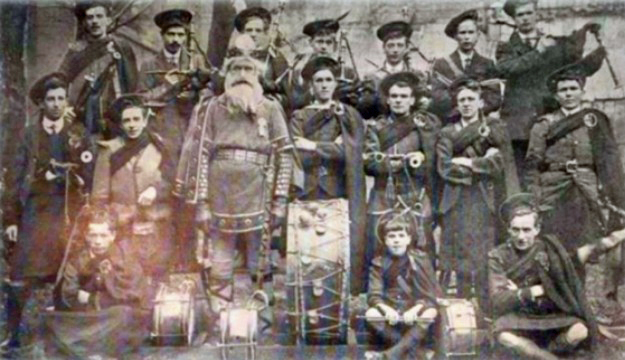

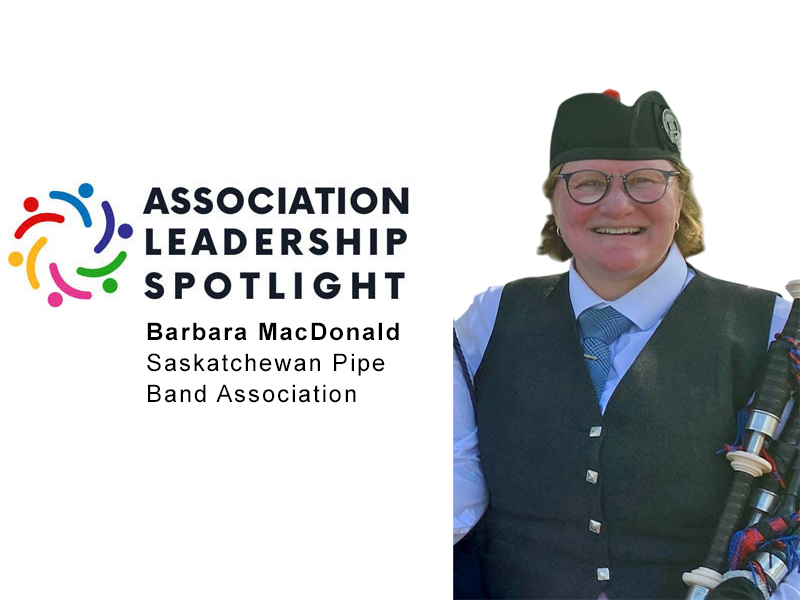


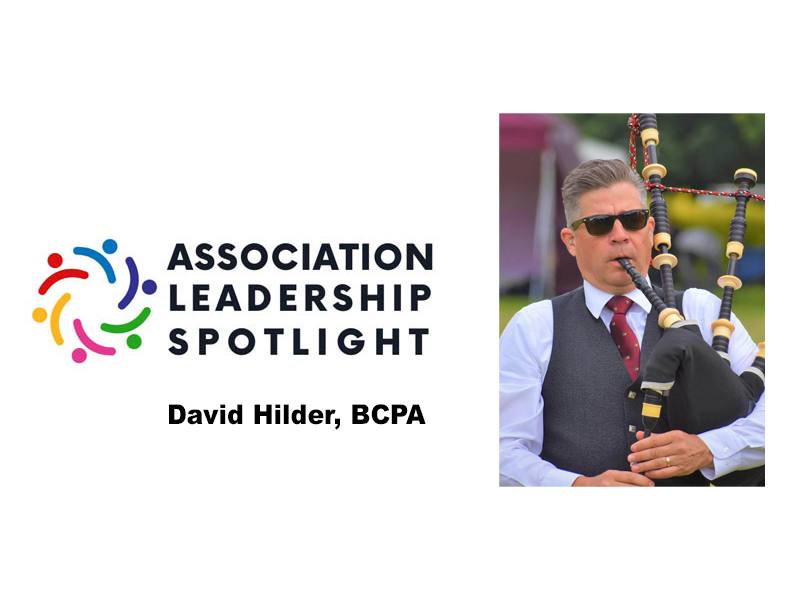
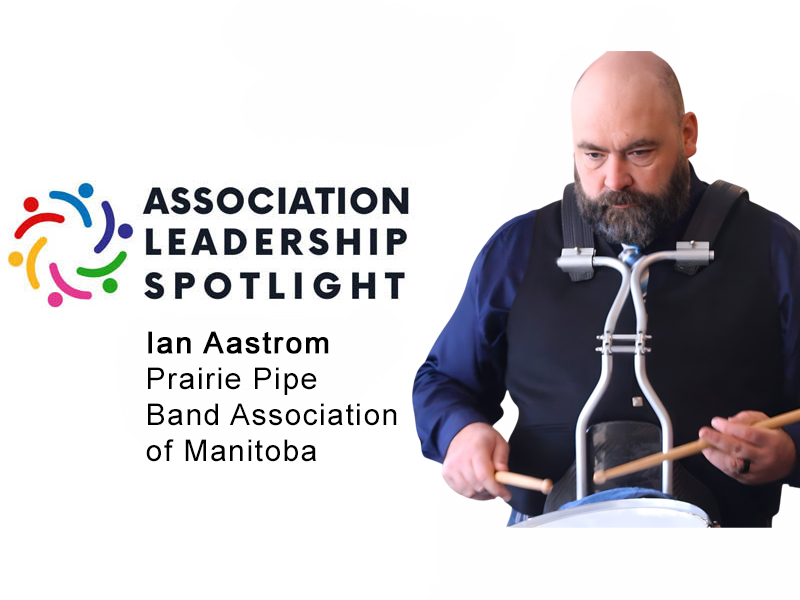

Fo the record, St Patrick’s Pipe Band Donaghmore were from Northern Ireland.